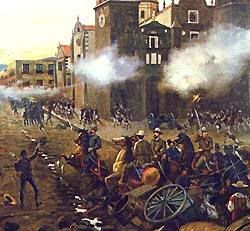Return Of The Turtles

Green Sea Turtle (chelonia mydas)
Some good news for today from the Caribbean Coast of Mexico.
Green sea turtles are again massing in the Caribbean Sea off the coral reef of Quintana Roo, Mexico, and are preparing to come ashore to lay their eggs on the beaches. These are an endangered species. This is an annual event that has repeated itself for millenia.
Every year the turtles come to the beaches between Playa del Carmen, Quintana Roo, Mexico and Belize to lay their eggs. I watch them in the sea just north of the Mayan ruins at Tulum. First, they mass off shore waiting for the right moment to begin their trip to shore. Nobody knows what makes the moment right, but it usually comes at the beginning of June. The turtles are massing now.

When the time is finally right, the turtles will emerge from the sea, pull themselves onto the beach, and lay their eggs in sand nests.
From The Dream Antilles:
At last a first green turtle emerges from the waves, and slowly begins its ascent up the beach. Everyone leaves the beach and moves further into the trees. All are silent. The turtle pulls hard with its flippers, and the shell gouges the sand. Its mouth is open as it breathes hard. Each push with its flippers is rewarded with only a few inches of forward progress and is impeded by a bow wave of gouged sand which will have to be climbed. Soon other turtles follow. They too struggle intently up the beach to dig holes with their flippers, to lay their hundreds of eggs, and to bury them in the sand.
Eventually, the turtles turn and push and slide and drag their way back to sea. They will not emerge for another year. The sea embraces and enfolds them. As soon as they reach the water, their full mobility is restored and they are swiftly gone. The male turtles remain behind in the sea, just beyond the shore, waiting patiently for their safe return.
The green turtle is threatened and/or endangered primarily because of two human activities: loss of breeding habitat (read: beach development) and plastic. These are factors that weigh heavily against hatchlings' survival, and nature had already made their survival a journey against great odds.
The challenges from humans are obvious. The turtles' navigation devices are often confused by bright lights coming from shore. The lighting makes it hard for the mother turtles to find the beach, and it makes it hard for the hatchlings-- they will hatch out in late August or early September-- to find their way back to the sea. One of my neighbors a few years ago carried more than a hundred hatchlings from his swimming pool back to the real sea. And pollution of all kinds, especially plastic, kills the turtles.
There are also the usual, expected, gigantic challenges from nature: millions of ravenous sea birds, small beach animals, snakes all seek the eggs as their next meal. The eggs used to be a staple of the diet of these animals and the indigenous people who lived here. And once they enter the sea, the small, unprotected hatchlings are food for the bigger fish both inside and outside the protective reef.
Despite all of this, and it is really quite a lot, I can expect to wake early in the morning in the next weeks to find a new turtle nest on the beach. We will mark it and protect it, and we will wait for the day in September when it erupts with teeming life and the hatchlings scurry back to the sea.
The turtles continue their cycle of life and birth. I can only hope that we'll find ways to preserve and protect them. In the meanwhile, this is an opportunity to marvel at the abundance of life on our planet.
Etiquetas: green turtles, tulum











